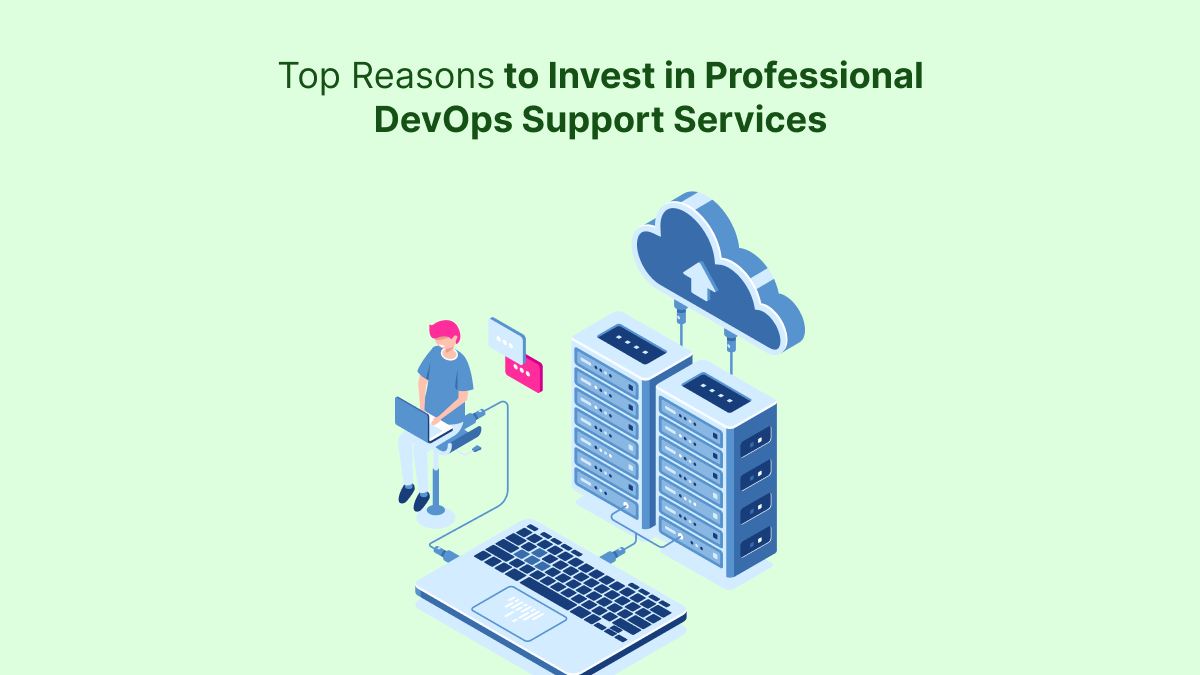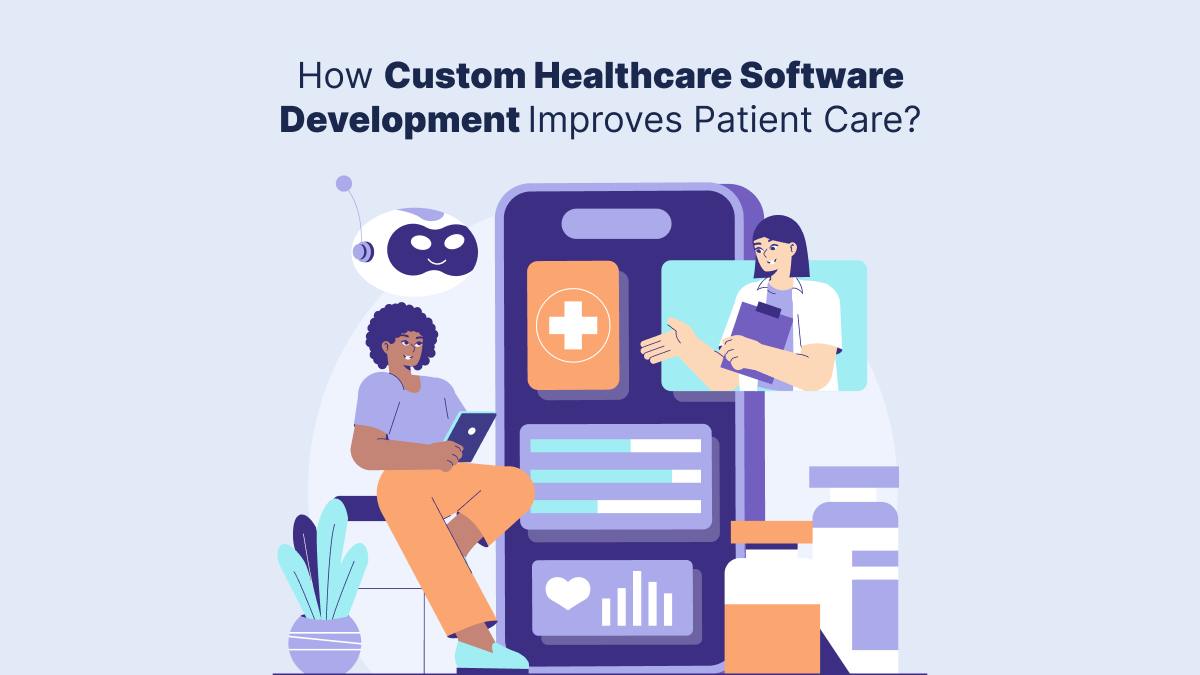
Introduction: Why DevOps Support Services Matter More Than Ever
In today’s digital-first business world, software isn’t just a part of the company—it is the company. From customer-facing apps to internal systems, software drives nearly everything. With increasing customer demands and competitive pressure, organizations are expected to release features faster, fix bugs quickly, and maintain high system uptime. That’s a lot to juggle without the right processes in place.
This is where DevOps support services come in. DevOps is a practice that bridges the gap between software development and IT operations. But DevOps isn’t just about tools—it’s about continuous improvement, automation, collaboration, and monitoring. Professional DevOps support ensures that these principles are not only introduced but implemented correctly and maintained for the long run.
If your business relies on technology—and most do today—investing in professional DevOps support services is one of the smartest decisions you can make. In this blog, we’ll explore the top reasons why these services are critical to your success.
What Are DevOps Support Services?
Before we get into the reasons to invest in them, let’s quickly understand what DevOps support services include.
DevOps support services refer to ongoing help from DevOps professionals to manage your CI/CD pipelines, automation tools, infrastructure, cloud platforms, and system monitoring. These services are not limited to setup but focus on continuous improvement, security, performance optimization, and team collaboration.
They typically cover:
Continuous Integration and Continuous Delivery (CI/CD) maintenance
Cloud infrastructure management and optimization
Automated testing and deployment
Security integration (DevSecOps)
System performance monitoring and troubleshooting
Technical consultation and support
With the help of professional support, your teams can focus on building great products while the DevOps experts ensure smooth, fast, and secure delivery.
Reason 1: Faster Software Releases
One of the most obvious benefits of DevOps support is faster delivery of software. Traditional development models often result in slow and infrequent releases because of manual handoffs, lengthy testing, and deployment delays.
Professional DevOps teams automate much of the release process using tools like Jenkins, GitLab CI, or CircleCI. Automation helps code move smoothly from development to production with minimal human intervention. This leads to:
Shorter development cycles
More frequent releases
Quicker bug fixes and updates
In a market where speed matters, faster software delivery can give your business a big edge.

Reason 2: Increased System Reliability and Uptime
Your customers expect your application or website to be available 24/7. Any downtime—whether planned or not—can result in lost revenue and a damaged reputation.
DevOps support services include constant monitoring, logging, and incident response. By using tools like Prometheus, Grafana, and ELK Stack, DevOps professionals can identify and resolve issues before they affect users.
They also implement rollback systems and redundancy plans to ensure your services stay online even when something goes wrong. This improves uptime, user experience, and trust in your brand.
Reason 3: Improved Collaboration Between Teams
DevOps is as much about people as it is about tools. One of its main goals is to break down silos between development, operations, and QA teams.
Professional DevOps support encourages communication and collaboration across departments. When everyone is aligned and working together, it becomes easier to:
Solve problems faster
Deliver features that actually meet user needs
Share responsibility for quality and performance
This culture of shared ownership leads to more engaged teams and better project outcomes.
Reason 4: Better Security with DevSecOps
Security is often treated as an afterthought in software development. But with today’s cyber threats growing more serious, it needs to be built into every stage of your development lifecycle.
Professional DevOps teams implement DevSecOps, which integrates security tools and practices into your pipelines. This means:
Code is scanned for vulnerabilities as it’s written
Automated tools detect risky configurations
Access is managed using role-based controls
Compliance audits are easier to perform
With professional support, your team doesn’t have to be security experts—DevOps helps them build secure apps by default.
Read more: How to Choose the Right DevOps Solutions Provider for Your Business Success?
Reason 5: Cost Efficiency Through Automation
Manual processes slow down teams and increase the chance of human error. Whether it’s setting up environments, deploying code, or monitoring systems, automation is key to saving time and money.
DevOps support services introduce automation wherever possible. This includes:
Automated infrastructure provisioning
Continuous testing and deployment
Auto-scaling of cloud resources
Smart alerts and performance checks
When your team spends less time on repetitive tasks, they can focus on building better features, fixing bugs, and improving user experience. That’s a smarter use of your resources.
Reason 6: Scalability and Flexibility
Whether your company is a startup or an enterprise, you’ll need to scale your operations eventually. DevOps support services help prepare your systems for future growth.
Using Infrastructure as Code (IaC) tools like Terraform or AWS CloudFormation, your infrastructure becomes version-controlled, repeatable, and scalable. You can:
Spin up new environments in minutes
Adjust capacity based on real-time traffic
Expand to new regions quickly
This flexibility is crucial for businesses looking to grow without hitting performance or cost issues.
Reason 7: Continuous Improvement and Innovation
DevOps isn’t a one-time setup—it’s a mindset of continuous improvement. With professional support, you’re not just reacting to problems. You’re constantly refining your systems, processes, and workflows to do better.
DevOps experts help your business:
Analyze performance metrics
Identify bottlenecks and inefficiencies
Test and validate new tools
Stay current with industry best practices
This ensures your tech operations are always moving forward—not getting stuck in outdated methods.
Reason 8: Expertise and Industry Best Practices
Hiring a full in-house DevOps team can be expensive and difficult. DevOps professionals are in high demand, and finding ones with the right experience can take time.
By investing in professional support services, you gain access to seasoned experts who bring years of experience and industry knowledge. They know what works, what doesn’t, and how to handle edge cases.
This means fewer mistakes, quicker results, and peace of mind that your system is in good hands.
How DevOps and App Development Go Hand in Hand
If your business offers mobile apps, web platforms, or digital services, DevOps support becomes even more essential. App performance, reliability, and user experience can make or break your product.
When DevOps practices are embedded into the app development process, your releases are:
Faster and more reliable
Easier to test and debug
Less likely to suffer from bugs or downtime
Combining your DevOps support with a skilled app development company ensures that both the backend systems and the user-facing applications are well-built, tested, and maintained. This integrated approach leads to long-term product success.
What Happens Without DevOps Support?
Without dedicated DevOps support, businesses often struggle with:
Long development cycles and slow releases
Unplanned downtime and delayed incident responses
Poor communication between development and operations
Security gaps and compliance issues
Higher operational costs due to manual processes
Eventually, these issues impact customer satisfaction, team morale, and even revenue. Investing in professional support helps avoid these risks and puts your business in a strong, proactive position.
Conclusion
DevOps is no longer optional for modern businesses—it’s essential. As technology becomes more critical to daily operations and customer engagement, companies must deliver software faster, safer, and more efficiently. Professional DevOps support services provide the structure, tools, and expertise needed to achieve those goals.
From boosting collaboration and automating workflows to improving security and reducing downtime, DevOps support lays the foundation for reliable and scalable digital systems. If your company is building digital platforms or launching new applications, pairing DevOps support with a trusted app development company will put you on the path to long-term success.
Frequently Asked Questions
What does DevOps support actually include?
DevOps support includes ongoing help with automation, infrastructure management, system monitoring, security integration, and performance optimization throughout the software lifecycle.
Can small businesses benefit from DevOps support services?
Yes, DevOps is scalable and flexible, making it suitable for businesses of all sizes. Even small companies benefit from faster delivery, reduced downtime, and better resource use.
Is DevOps support only for cloud-based systems?
No, while DevOps works very well with cloud environments, it can also be implemented in on-premise or hybrid systems to improve delivery and collaboration.
How does DevOps improve software quality?
By introducing continuous integration, automated testing, and real-time monitoring, DevOps helps detect and fix bugs earlier, leading to more stable and reliable software.
How do I know if my business needs DevOps support?
If you’re facing slow releases, frequent bugs, poor team coordination, or infrastructure challenges, it’s a strong sign that professional DevOps support could benefit your organization.



Write a comment ...